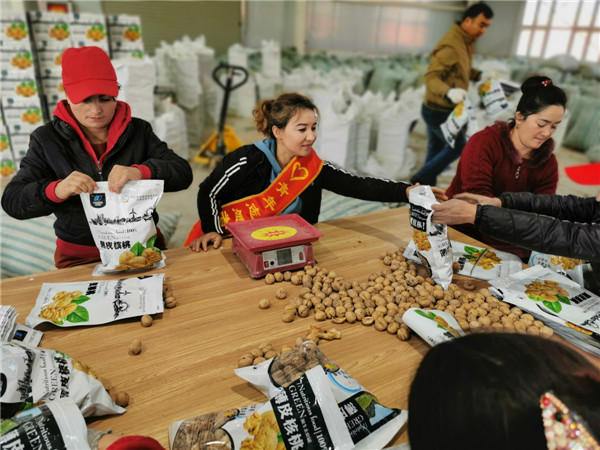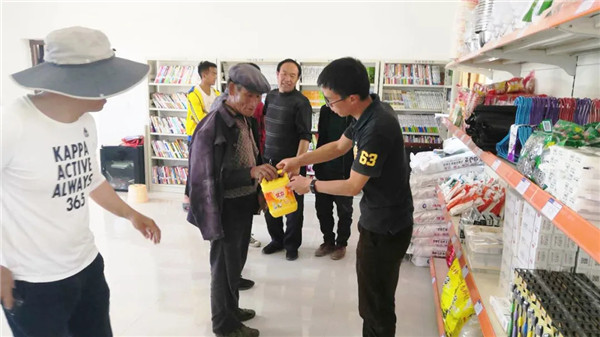CHD Helps Move Unsalable Agricultural Products
China Huadian Corporation Ltd. (CHD) helped poverty-stricken areas move unsalable goods through increasing sales channels and purchasing the products during the COVID-19 outbreak, which pushed forward China's poverty alleviation.
CHD's subsidiary in Gansu province learned the details regarding unsalable agricultural products and initiated a pepper product promotion conference, which helped the CHD-targeted poverty alleviation village sell more than 215 kilograms of pepper and brought in more than 38,700 yuan ($5,463.32) of income for over 20 poverty-stricken households.
The company also built a local chicken breeding base in Dangjia village of Hancheng in Shaanxi province and encouraged its employees to buy chickens from the village. The base has gained about 55,000 yuan of profits since it opened, with the money going to 94 household listed as poverty-stricken.
Similar steps were also taken in other subsidiaries of CHD.
The Wujiang branch in Guizhou province invested 700,000 yuan in the promotion of such local industries as tea products. The company helped the tea growers develop the market, expand the industrial chain and increase added value, which heightened awareness of the local products’ brand.
In 2019, the company bought local agricultural products valued at 4.16 million yuan for canteen food and launched a summer promotion which led to 343,000 yuan's worth of purchases from poverty-stricken areas.
CHD also cooperated with other units and departments to develop a sales channel between upstream agricultural production bases and downstream consumers.
Dapai village in Enshi Tujia and Miao autonomous prefecture in Central China's Hubei province is one of the extremely-poor villages in China and a precise poverty alleviation target of CHD's Hubei subsidiary.
In 2019, the company built an e-commerce service center with the Dapai village collective operation company, which later became a national comprehensive village e-commerce demonstration project.
Kiwi fruits and sweet persimmons valued at 200,000 yuan were sold through the e-commerce platform within the year.
To promote the village to the market, a "market-collective operation company-poverty-stricken household" industrial chain mechanism was formed. Agricultural products including pork, chicken and taro lotus stems are collected from individuals, processed and sold together on the platform.
A similar mode of "peasant household-cooperative-enterprise" was also promoted by CHD's branch in Northwest China's Xinjiang Uygur autonomous region.

Walnuts produced in Shangatushi town of Xinjiang are given the same packaging. [Photo/sasac.gov.cn]
In Shangatushi town, locally-grown walnuts were collected, checked, packed in the same style package and transported with the help of the Xinjiang subsidiary of CHD.
In 2019, the subsidiary helped the town sell 60,500 kilograms of walnuts which increased the income of more than 300 poverty-stricken families.
In addition to increasing income, some CHD subsidiaries also focus on enriching local people's cultural and spiritual lives.
Huadian Jinsha River Upstream Hydropower Development Co., Ltd, together with the State-owned Assets Supervision and Administration Commission of Sichuan Province, invested 30,000 yuan in building a supermarket in which villagers can change points for goods.

Villagers change points for daily necessities at the special supermarket. [Photo/sasac.gov.cn]
CHD's subsidiary in Southwest China's Yunnan province launched a similar activity in Donghong village.
The points are given to the villagers based on seven criteria including living environment, national policy knowledge, family virtues and study.
As the year of 2020 is crucial in winning the anti-poverty battle, CHD will continue its efforts in poverty alleviation.
(Executive editor: Zhang Tianyuan)



